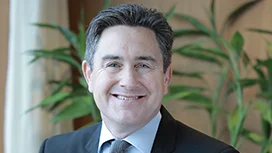“DHL Express is at the forefront of SAF adoption, and we look forward to seeing more partners and customers join us on this journey to build a more robust SAF ecosystem in Asia. Our continued investment in this area aligns with DHL Group’s Strategy 2030, which recognises ‘green logistics of choice’ as one of the four bottom lines.”
This deal builds upon a longstanding relationship between DHL Express and the Cathay Group through Air Hong Kong. Air Hong Kong has been part of DHL Express’s Asia Pacific network for over twenty years. The new collaboration strengthens their efforts toward advancing sustainable aviation practices.
Tom Owen, Director Cargo at Cathay, commented: “This partnership marks the first SAF uplift on Air Hong Kong flights, a key milestone for Cathay as we continue to expand the SAF usage across our global network. SAF remains a core pillar of our strategy to address our carbon emissions, and collaboration is essential to scaling its use. We are excited to be working with like-minded partners like DHL Express to make SAF more accessible and scalable, particularly in Asia.”
Through this agreement, DHL Express becomes part of Cathay’s Corporate SAF Programme. Launched in 2022, this initiative supports corporate partners seeking ways to reduce greenhouse gas emissions from business travel and airfreight via use of sustainable fuels. In 2024 alone, over 6,000 tonnes of SAF were used under this programme with participation from organizations such as HSBC, AIA and Standard Chartered.
Cathay has recently expanded its efforts related to sustainable aviation fuel throughout Asia. Earlier in 2025 it reached an agreement with Sinopec enabling export of Chinese Mainland-produced SAF at Hong Kong International Airport—a first for Sinopec—and partnered with SK Energy for future supply in South Korea between 2025-2027. The group also helped establish the Hong Kong Sustainable Aviation Fuel Coalition (HKSAFC) aiming at policy development and greater local adoption.
Investments into sustainable fuels are considered crucial for ensuring long-term availability. DHL Express has entered long-term agreements globally with several suppliers including Neste, bp and World Energy; earlier partnerships include Cosmo Oil Marketing in Japan where locally produced SAF was introduced on outbound flights from Japan as well as an agreement with Neste involving 7,400 tonnes supplied out of Singapore Changi Airport.
These activities are aligned with DHL’s Strategy 2030 focus areas such as developing logistics solutions supporting alternative energy sectors including wind power components or battery storage systems (https://www.dhl.com/global-en/home/about-us/media-relations/press-releases/2024/dhl-group-announces-record-earnings-and-sustained-growth-in-2023.html).
DHL operates worldwide providing parcel delivery services alongside other transportation solutions; it employs about 400,000 people across over 220 countries (https://www.dhl.com/global-en/home/about-us/who-we-are.html). In fiscal year 2024 its parent company generated revenues exceeding €84 billion while maintaining goals towards net-zero emission logistics by mid-century.
Cathay Group offers products spanning passenger travel—through home airline Cathay Pacific—and cargo operations via subsidiaries like HK Express or Air Hong Kong (https://www.cathaypacific.com/cx/en_HK/about-us/investor-relations/company-profile.html). Air Hong Kong itself flies scheduled cargo routes across regions including Asia-Pacific using only Airbus A330 freighters since becoming wholly owned by Cathay Pacific Airways Limited (https://www.airhongkong.com.hk/our-fleet).
 Alerts Sign-up
Alerts Sign-up





































